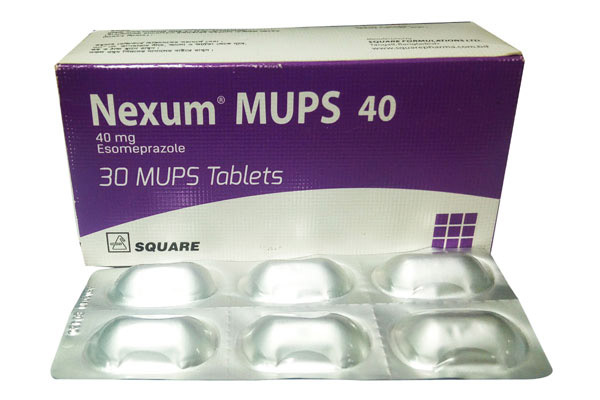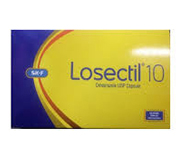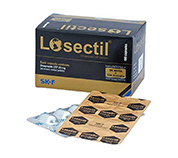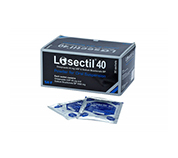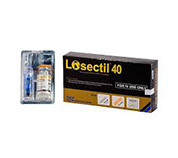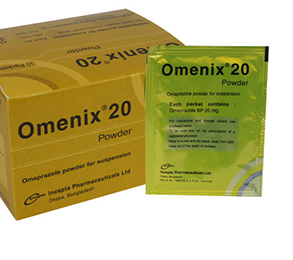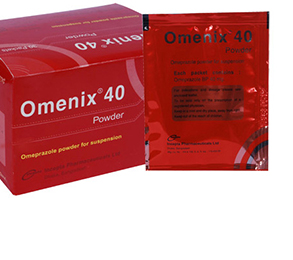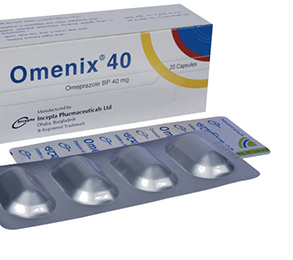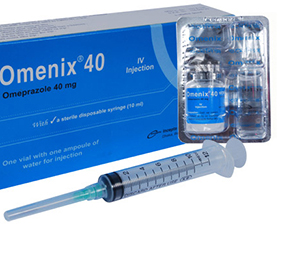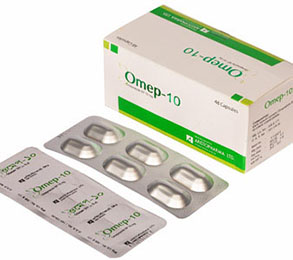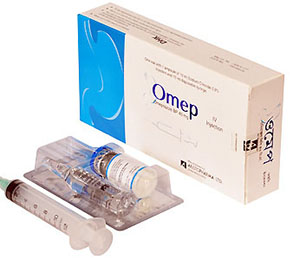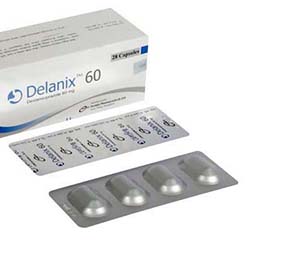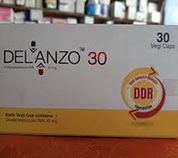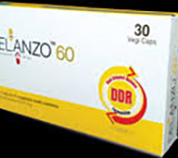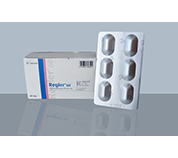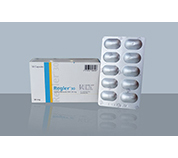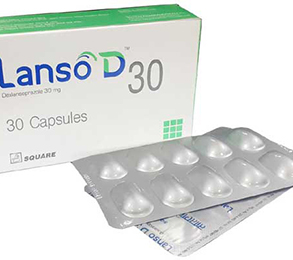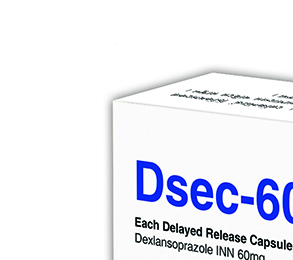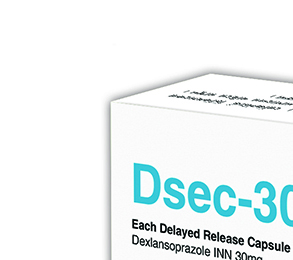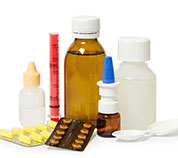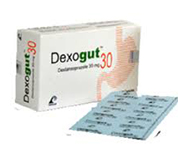Nexum Mups 40 6 Pcs
Price:
84 ৳
Generic Name:
Brand:
Type:
Quantity:
Alternative products
Share:
Indications
Esomeprazole is indicated:
- Treatment of Gastroesophageal Reflux Disease (GERD)
- Healing of Erosive Esophagitis
- Maintenance of Healing of Erosive Esophagitis
- Symptomatic Gastroesophageal Reflux Disease
- H. pylori Eradication to Reduce the Risk of Duodenal Ulcer Recurrence
- Zollinger-Ellison Syndrome
- Acid Related Dyspepsia
- Duodenal and Gastric Ulcer
* চিকিৎসকের পরামর্শ অনুযায়ী ঔষধ সেবন করুন
Therapeutic Class
Proton Pump Inhibitor
Pharmacology
Esomeprazole exerts its stomach acid-suppressing effects by preventing the final step in gastric acid production by covalently binding to sulfhydryl groups of cysteines found on the (H+, K+)-ATPase enzyme at the secretory surface of gastric parietal cells. This effect leads to inhibition of both basal and stimulated gastric acid secretion, irrespective of the stimulus. As the binding of esomeprazole to the (H+, K+)-ATPase enzyme is irreversible and new enzyme needs to be expressed in order to resume acid secretion, esomeprazole's duration of antisecretory effect that persists longer than 24 hours
Dosage
Tablet or Capsule:
Healing of erosive esophagitis: 20 mg or 40 mg once daily for 4 to 8 Weeks. For those patients who have not healed after 4-8 weeks of treatment, an additional 4-8 weeks course of Esomeprazole may be considered.Long-term management of esophagitis: 20 mg once daily.
Symptomatic gastroesophageal reflux disease: 20 mg once daily for 4 weeks.
H. pylori eradication for treatment of duodenal ulcer: Triple therapy: 20 mg Esomeprazole once daily with 500 mg Clarithromycin twice daily, and 1 g Amoxicillin twice daily for 7-10 days.
Injection:
The recommended adult dose in GERD with Erosive Esophagitis is either 20 or 40 mg Esomeprazole given once daily by intravenous injection (no less than 3 minutes) or intravenous infusion (10 to 30 minutes).Pediatric dose (1 to 11 years old):
- Short term treatment of symptomatic GERD: 10 mg once daily for up to 8 weeks.
- Weight <20 kg: 10 mg once daily for up to 8 weeks.
- Weight ≥20 kg: 10 mg or 20 mg once daily for up to 8 weeks.
* চিকিৎসকের পরামর্শ অনুযায়ী ঔষধ সেবন করুন
Administration
Preparations for Use and Administration of Esomeprazole 40 IV Injection: A solution for intravenous infusion is prepared by first reconstituting the contents of one vial with 5 ml of 0.9% Sodium Chloride and further diluting the resulting solution to a final volume of 50 ml. The resultant concentration after diluting to a final volume of 50 ml is 0.8 mg/ml.
- 20 mg dose: Withdraw 25 ml of the final solution and administer as an intravenous infusion over 10 minutes to 30 minutes.
- 10 mg dose: Withdraw 12.5 ml of the final solution and administer as an intravenous infusion over 10 minutes to 30 minutes.
* চিকিৎসকের পরামর্শ অনুযায়ী ঔষধ সেবন করুন
Interaction
Drug interaction studies have shown that Esomeparzole does not have any clinically significant interactions with Phenytoin, Warfarin, Quinidine, Clarithromycin or Amoxicillin. Esomeprazole inhibits gastric acid secretion. Therefore, Esomeprazole may interfere with the absorption of drugs where gastric pH is an important determinant of bioavailability (eg, Ketoconazole, Iron salts and Dogoxin). Coadministration of oral contraceptives, Diazepam, Phenytoin or Quinidine did not seem to change the pharmacokinetic profile of Esomeprazole.
Contraindications
Esomeprazole is contraindicated in patients with known hypersensitivity to any component of the formulation or to substituted Benzimidazoles.
Side Effects
In general, esomeprazole is well tolerated in both short and long term use. Adverse events reported with esomeprazole include headache, diarrhoea, nausea, flatulence, abdominal pain, constipation and dry mouth.
Pregnancy & Lactation
Pregnancy: There are no adequate and well-controlled studies on the use of Esomeprazole in pregnant women. Therapeutic doses during pregnancy are unlikely to pose a substantial teratogenic risk. Esomeprazole should be used during pregnancy only if the potential benefit to pregnant women justifies the potential risk to the fetus.
Lactation: Esomeprazole is excreted in human milk. Thus, a decision should be taken to discontinue nursing or to discontinue the drug, taking into account the importance of the drug to the mother.
Lactation: Esomeprazole is excreted in human milk. Thus, a decision should be taken to discontinue nursing or to discontinue the drug, taking into account the importance of the drug to the mother.
Precautions
Symptomatic response to therapy with Esomeprazole does not preclude the presence of gastric malignancy. Atrophic gastritis has been noted occasionally in gastric corpus biopsies from patients treated long-term with omeprazole, of which Esomeprazole is an enantiomer.
Overdose Effects
There is no experience to data with deliverate overdose. Data are limited but single doses of 80 mg Esomeprazole were uneventful. Esomeprazole is extensively plasma protein bound and is therefore not readily dialyzable. As in any case of overdose, treatment should be symptomatic and general supportive measures should be utilised.
Use in Special Population
Geriatric: Dosage adjustment is not necessary.
Pediatric: Safety and effectiveness in pediatric patients have not been established.
Hepatic insufficiency: No dosage adjustment is recommended for patients with mild to moderate hepatic insufficiency. However, in patients with severe hepatic insufficiency a dose of 20 mg once daily should not be exceeded.
Renal insufficiency: Dosage adjustment is not necessary.
Pediatric: Safety and effectiveness in pediatric patients have not been established.
Hepatic insufficiency: No dosage adjustment is recommended for patients with mild to moderate hepatic insufficiency. However, in patients with severe hepatic insufficiency a dose of 20 mg once daily should not be exceeded.
Renal insufficiency: Dosage adjustment is not necessary.
Reconstitutions
Directions for reconstitution of solution: Solution for injection is prepared by adding 5 ml of 0.9% Sodium Chloride for intravenous injection into the vial containing the dry powder. The reconstituted solution for injection is clear and colorless to very slightly yellow.
Storage Conditions
Store between 15-30°C. Protect from light.
- Type Tablet
- Tag
- Morbi leo risus
- Porta ac consectetur ac
- Vestibulum at eros
Related products
O-20 Capsule 20 mg
50 ৳
Omenix 20 Pfs
30 ৳
Omenix 40 Pfs
50 ৳
Omenix 40 Cap
80 ৳
Omenix 40 Inj
90 ৳
Omep 10 mg
20 ৳
Omep
80 ৳
Delanix 60mg
64 ৳
Delanzo Capsule 30 mg
Delanzo Capsule 60 mg
Reglar 60mg
Reglar 30mg
Lantidex 30 mg
90 ৳
Lanso D 30
100 ৳
Dsec 60mg
Dsec 30mg
Dextac Capsule 30 mg
Dextac Capsule 60 mg
Dexogut 30 mg
100 ৳
